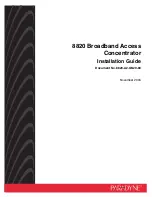
2007-11-07
5011642602-BU02
BUE Series
Brake Modules
Instruction Sheet
X
Preface
Congratulations on your purchase of DELTA’s brake module. BUE brake
units are applied to absorb the motor regenerative energy when 3-phase
induction motor stops by deceleration. With BUE brake unit, the
regenerative energy is dissipated in the brake resistors. To prevent
mechanical or human injury, please read this instruction sheet thoroughly
before wiring.
BUE brake units are suitable for VFD-E/VFD-EL Series. BUE brake units
need to be used in conjunction with BR series brake resistors to provide the
optimum brake characteristics.
BUE brake units (20015 and 40015) are approved by Underwriters
Laboratories, Inc. (UL) and Canadian Underwriters Laboratories (cUL). The
content of this instruction sheet may be revised without prior notice, please
consult our distributors or download the most updated version at
http://www.delta.com.tw/industrialautomation.
Y
Specifications
115/230V Series
460V Series
BUE-20015 BUE-20037 BUE-40015 BUE-40037
Max. Motor Capacity (KW)
1.5 3.7 1.5 3.7
Max. Peak Discharge
Current (A) 10%ED
3.6 16 1.8 8
Outpu
t
Rating
Brake Start-up
Voltage (DC)
328/345/362/380/400
±
3V 656/690/725/760/800
±
6V
Inpu
t
Rating
DC Voltage
200~400VDC 400~800VDC
Heat Sink Overheat
Temperature over +100
°
C
Prote
cti
on
Power Charge
Display
Blackout until bus (+~-) voltage below 50VDC
Installation Location
Indoor (no corrosive gases, metallic dust)
Operating
Temperature
-10
℃
~+50
℃
Storage Temperature
-20
℃
~+60
℃
Humidity
90%R.H., Non-condensing
Environmen
t
Vibration
9.8m/s
2
(1G) under 20Hz
2m/s
2
(0.2G) at 20~50Hz
Mechanical Configuration
Wall-mounted enclosed type IP20
Z
Dimensions and Installations
3.1 Brake resistor
TYPE
L1
L2
H
D
W
MAX.
WEIGHT(g)
BR080W200
140 125 20 5.3 60 160
BR080W750
140 125 20 5.3 60 160
BR300W400
215 200 30 5.3 60 750
3.2 Brake unit
3.3 DIN Rail Installation
[
Outline and Wire Gauge
4.1 Outline
Slave output/input
Terminals
220
240230
210200190
OFF
ON
Power lamp
Brake lamp
Fault lamp
MASTER/SLAVE
Switch
Power Input
Terminal
Brake Resistor Terminal
Dip Switch
for Input Voltage Setting
M1 SLAVE output
M2
S1
S2
:
:
:
:
SLAVE output signal -
SLAVE input
SLAVE input signal -
4.2 Wire Gauge for Terminals
Circuit
Terminal
Symbol
Wire Gauge
AWG/mm
2
Terminal
Power Input
Circuit
+(P), -(N)
20~22AWG/0.5~0.3mm
2
M4
Screw
Brake Resistor
B1, B2
20~22AWG/0.5~0.3mm
2
M4
Screw
SLAVE Circuit
M1, M2
S1, S2
24AWG/0.2mm
2
M1, M2, S1, S2 with shielded
wires
M2 Screw
\
Basic Wiring Diagram
R/L1
S/L2
T/L3
NFB
MC
VFD-E/VFD-EL
Series
BUE
MOTOR
O.L.
U/T1
V/T2
W/T3
+/B1 P
- N
( )
( )
B1
B2
SA
R/L1
S/L2
T/L3
MC
IM
BR
O.L.
Thermal
Overload
Relay
Surge
Absorber
Thermal Overload
Relay
Brake Resistor
Brake
Unit
+ P
- N
( )
( )
Note1: When the AC drive uses with DC reactor, please refer to the wiring diagram in the
VFD-E/EL user manual for wiring te(P) of brake unit.
Note2:
wire terminal -(N) to neutral point of power system.
DO NOT
NOTE
For safety consideration, install an overload relay between the
brake unit and the brake resistor. In conjunction with the magnetic
contactor (MC) prior to the drive, it can perform complete protection
against abnormality.
The purpose of installing the thermal overload relay is to protect the
brake resistor from damage due to frequent brake, or due to brake
unit keeping operating resulted from unusual high input voltage.
Under such circumstance, just turn off the power to avoid
damaging the brake resistor.
Please refer to “
7 Brake Resistor/Units for the AC Drives
” for the
specification of the thermal overload relay.
]
Wiring Warnings
Do not proceed with wiring while power is applied to the circuit.
The wiring gauge and distance must comply with the local
regulations.
The +(P), -(N) terminals of the AC motor drive (VFD-E/VFD-EL
Series), connected to the brake unit (BUE), must be confirmed for
correct polarity lest the drive and the brake unit be damaged when
power on.
When the brake unit performs brake, the wires connected to +(P),
-(N), B1 and B2 would generate a powerful electromagnetic field
for a moment due to high current passing through. These wires
should be wired separately from other low voltage control circuits
lest they make interference or mis-operation
Wiring distance
VFD-E/VFD-EL
series
0.2~1.5kW
115V/230/460V
Max. 2M
Max. 1M
BR
BUE-
20015
20037
40015
40037
AC Motor Drive
Brake Unit
Brake Resistor
Inflammable solids, gases or liquids must be avoided at the location
where the brake resistor is installed. The brake resistor had better
be installed in individual metallic box with forced air-cooling.
Connect the ground terminal to the Earth Ground. The ground lead
must be at least the same gauge wire as leads +(P), -(N).
Please install the brake resistor with forced air-cooling or the
equivalent when frequent deceleration brake is performed (over
10%ED).
To avoid personal injury, do not connect/disconnect wires or
regulate the setting of the brake unit while power on. Do not touch
the terminals of related wiring and any component on PCB lest
users be damaged by extreme dangerous DC high voltage
We suggest to use ring terminals for main circuit wiring. Make sure
the terminals are fastened before power on.
^
Brake Resistors/Units for Delta VFD
AC Motor Drives Series
Applicable
Motor
Vo
lta
ge
HP kW
Full-load
output
torque
KG-M
Equivalent
brake
resistor for
each AC
drive
Brake Unit
Model and
Quantity
Brake Resistor
Model and
Quantity
Brake
Torque
10%
ED%
Min.
Equivalent
Resistor
Value for
Each AC
Drive
Typical
Thermal
Overload
Relay
Value
1/4 0.2
0.110
200W 250
Ω
BUE20015 1
BR200W250
1
320
200
Ω
2A
1/2 0.4
0.216
200W 250
Ω
BUE20015 1
BR200W250
1
170
100
Ω
3A
1 0.75 0.427
200W 150
Ω
BUE20015 1
BR200W150
1
140
80
Ω
4A
2
1.5
0.849
300W100
Ω
BUE20015 1
BR300W100
1
107
80
Ω
4A
3
2.2
1.262
600W 50
Ω
BUE20037 1
BR300W100
2
150
25
Ω
12A
115/230V
Serie
s
5
3.7
2.080
900W 30
Ω
BUE20037 1
-
-
150
25
Ω
12A
1/2 0.4
0.216
300W 400
Ω
BUE40015 1
BR300W400
1
400
400
Ω
2A
1 0.75 0.427
300W 400
Ω
BUE40015 1
BR300W400
1
200
200
Ω
3A
2
1.5
0.849
400W 300
Ω
BUE40015 1
BR200W150
1
140
160
Ω
4A
3
2.2
1.262
300W 400
Ω
BUE40037 1
BR300W400
2
150
100
Ω
6A
460V
5
3.7
2.080
900W 120
Ω
BUE40037 1
-
-
150
100
Ω
6A
NOTE
“-“ means no Delta product. Please use the brake unit according to
the Equivalent Resistor Value.
The cycle time of brake usage ED% in the above table is 10
seconds.
For the detail applicable models, refer to the following list:
A. BUE20015 is used for
VFD002E11A/11P/11C/21A/21P/21C/23A/23P/23C,
VFD004E11A/11P/11C/21A/21P/21C/23A/23P/23C,
VFD007E21A/21P/21C/23A/23P/23C, VD015E23A/23P/23C,
VFD002EL11A/21A/23A, VFD004EL11A/21A/23A,
VFD007EL11A/21A/23A, VFD015EL21A/23A
B. BUE20037 is used for VFD022EL21A/23A, VFD037EL23A
C. BUE40015 is used for VFD004E43A/43P/43C,
VFD007E43A/43P/43C, VFD015E43A/43C, VFD004EL43A,
VFD007EL43A, VFD015EL43A
D. BUE40037 is used for VFD022EL43A, VFD037EL43A
_
Definition for the Brake Usage ED%
100%
T0
T1
Brake Time
Cycle Time
ED% = T1/T0x100(%)
The definition of the brake usage ED(%) is to assure having enough time
for the brake unit and brake resistor to dissipate the heat generated by
brake. When the brake resistor heats up, the resistance would increase
with temperature, and brake torque would decrease accordingly.
`
The Voltage Settings
The power source of the brake unit is the DC power from the + (P) and - (N)
terminals of the AC motor drive. Therefore, it is an important step to set the
voltage by the input voltage of the AC motor drive before operation. This
setting will affect the voltage level of the brake unit.
Table 1: The voltage selection and operation level of the PN DC voltage
115V/230V
Model
AC Power
Voltage
Brake Start-up
voltage
DC Bus (+(P), -(N))
Voltage
460V Model
AC Power
Voltage
Brake Start-up voltage
DC Bus (+(P), -(N))
Voltage
190Vac 330Vdc 380Vac 660Vdc
200Vac 345Vdc 400Vac 690Vdc
210Vac 360Vdc 420Vac 725Vdc
220Vac 380Vdc 440Vac 760Vdc
230Vac 400Vdc 460Vac 800Vdc
NOTE: Input Power With Tolerance
±
10%
220
24 02 30
21 02 0019 0
OFF
ON
220
240230
210200190
OFF
ON
440
480460
420400380
OFF
ON
For BUE-20015 Series/
BUE-20037 Series
Factory setting: 190V
For BUE-40015 Series/
BUE-40037 Series
Factory setting: 380V
NOTE
Before setting the voltage, make sure the power has been turned
off.
Please set power voltage as the possible highest voltage for
unstable power system. Take 380VAC power system for example.
If the voltage may be up to 410VAC, 415VAC should be selected.
For VFD-E/VFD-EL Series, please set parameter Pr06.00=0 (Over
Voltage Stall Prevention) to disable over-voltage stall prevention, to
ensure stable deceleration characteristic.




















